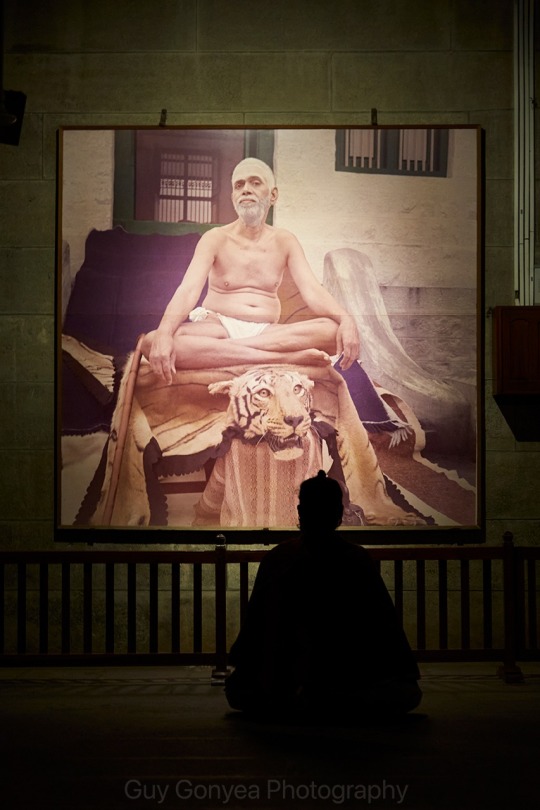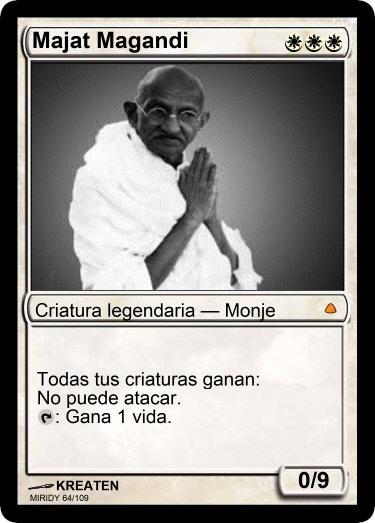#Mahatma
Text

Advertisement for Water Maid rice and Mahatma rice (1959).
63 notes
·
View notes
Text
youtube
"Well obviously you tin can baked bean dumb fuck" 😂
Not only do we get GBA but also Yuurivoice, Redacted Audio, and EscapedAudios!!!!! I fucking can't!!🥰
#good boy audios#bounty hunter#yuurivoice#hipswitch#demon#albus#redacted audio#doctor#mahatma#attila#escapedaudios#jess prodman#sfwaudio#🌟
46 notes
·
View notes
Text
I NEED someone to write more mahatma fanfics on a03 bc I'm running out. There's barley any 😭
20 notes
·
View notes
Text
“Quando voi discuterete non lasciate che i vostri cuori si allontanino, non dite parole che li possano distanziare di più, perché arriverà un giorno in cui la distanza sarà tanta che non incontreranno mai più la strada per tornare.”
-Mahatma Gandhi
10 notes
·
View notes
Text
I'm not that regular on social media, but lately I've been witnessing so much of hatred between religions in my country. I'm ashamed to share this, but I was concerned. the youth of my country are wasting their most important years of their lives in promoting religious beliefs around and increasing hatred against other religions, which is very sad. and this name changing agenda... I don't know what good it will bring. it may lead to various misconceptions inside the country for various groups of people(it's already happening.) all I ask is, handle with care. this subject is kinda sensitive and fragile. just provide the awareness about the situation to people around you who are acting like racists. we are educated young people of the country. taking care of our country is our responsibility. UNITE WE WIN. DIVIDE WE FALL.
#india#indian#bharat#youth#racism#racist#fuck racism#equality#religion#desi tumblr#desiblr#desi tag#desi academia#gandhi#mahatma#mahatma gandhi#hinduism#muslim#islam#christianity#hindu mythology#hindublr#islamic#lord rama#allah#jesus#jesus christ#lord shiva#lord krishna#india love
5 notes
·
View notes
Text

As an ode to Bapu, may we all have the strength to be the change we want to see in the world. Happy Gandhi Jayanti.
Visit: https://briskwinit.com/
#gandhi#mahatma#gandhijayanthi#fatherofthenation#freedomfighter#freedom#peace#nonviolence#teacher#india#indian#gandhijayanti#mahatmagandhi#gandhiji#gandhiquotes#khadi
4 notes
·
View notes
Photo

🔱 Om Namo Bhagavathe Sri ArunachalaRamanaya 🔱
Photo by Guy Gonyea
🕉️
The Paramount Importance of Self Attention, by Sri Sadhu Om, As recorded by Michael James
Part Four - Mountain Path: January – March 2013 - Excerpt
Note of 2nd January 1978
🕉️
Sadhu Om: Once we have wholeheartedly taken Bhagavan to be our guru, we have no need to worry: we are like the child in its mother's lap. Of course, we cannot expect Bhagavan to choose us as his disciples, because in his view there are no others, so it is for us to decide that he is our only guru and protector.
Once we have wholeheartedly decided this, then we are truly having association or satsanga with him. This is really the satsanga that he refers to in the first five verses of Ulladu Nαrpadu Anubandham [Reality In Forty Verses - Supplement]. Once we enjoy this satsanga, he will be working from within and without. From outside he will shape our physical circumstances suitably, and from inside he will work deep within our cittam (mind, mental activities), where he will root out our vāsanās by burning, drying, churning out or dealing with them in whatever other way is most appropriate. We may not see any changes, of course, because the mind is not a suitable instrument for gauging its own development.
The influence of his silence is of course dependent upon [the receptivity of] us, the receiver set. As he says in the twelfth paragraph Nan Yar? - Who am I?, we must unfailingly follow the path shown by the guru. We must be sincere in our love for him. He says that he is self-shining in each one of us as 'I', so if we really love him, we will naturally and happily attend to this 'I'. When we are thus in his hands, he will make us do whatever is necessary. When we should attend to self, he will make us do so, and when we need some other experiences, he will provide them also.
If Bhagavan was truly a fit guru (our real self) when he was appearing as a body, then he must also be a fit guru now. But then he was with all his (Brahman's) five aspects, sat-cit-ānanda-nāma-rūpa [being-consciousness-bliss and name-and-form], whereas he is now without nāma-rūpa, his false aspects, and hence he shines unimpeded as pure sat-cit-ānanda. Therefore his power is now infinite. He always used to say that his body was veiling his true nature, and that those that took that body to be guru would be disappointed. Now his body has gone, he has left us with no outward form to cling to, so we have no alternative but to accept that 'I am' alone is the guru. I have found that many disciples who have come to him after the passing of his body are more sincere and have clearer understanding than most of those who came earlier [because they were fixated just on his physical form].
He now saves us from mistaking him to be the body, so what advantage would we gain from going to other bodies who are reputed to be great mahātmas? He has said that the greatest mahātma is within, so why not forget those other mahātmas and abide peacefully as this mahātma (our real self)?
Using the yardstick given to us by Bhagavan, we can now see that any would-be guru who conducts classes and flies around the world, thinking that he is guiding others, is not a real guru, because the guru does not see any ignorant jivas to guide. Bhagavan never attempted to guide anyone, but just kept quiet, and it was always a great wonder to him when people came to him saying, 'Bhagavan, I do not know myself, so please show the way to self'. What could he reply? He could only counter question: 'Who does not know whose self? Who is this I?'
Α mantra is a set of sacred syllables, and the word literally means 'that which protects when meditated on', coming from the same root as manas [mind] and manana [meditation or cogitation]'. Who is to be protected? The ego! A name of God will at least lead us to God, but a mantra will only protect us (our ego, mind or individuality) from God. There has been so much talk in India about mantras that nowadays people are not satisfied unless they are given a mantra. However, mantras are only for worldly things, so Bhagavan and Ramakrishna never initiated anyone with mantras.
Bhagavan's instruction concerning mantra-japa was that we should watch the source from which the sound of the mantra rises. What did he mean? Since the sound rises only from oneself, who repeats the mantra, he meant that we should ignore the mantra and instead cling fast to self-attention.
The mind must be made one-pointed so that it will cling to one thing alone, but for that it is not necessary to practise concentration on any second or third person, such as our breathing, a mantra or a form of God. We can just as well start our concentration practice by attending to the first person, 'I'. If we wish to learn to cycle in order to cycle to Tirukoilur, it is not necessary to practise in some open space here. Why not start our practice on the road to Tirukoilur? Likewise, since self is our goal, why not start by attending to self?
Some people may say that attending to 'I' is more difficult than attending to other things, but how can they prove their claim? In part one of The Path of Sri Ramana I have explained what is difficult and what is easy. Whatever you try to attend to, whenever your attention wanders, you must draw it back to its target, and this is easy to do whether that target is 'I' or some object. Attending to the first person is the direct means, and attending to anything else is in no way any easier. Indeed, practising concentration on any object will only increase the outgoing tendency of the mind, and will thus hinder us when we turn towards self.
In Nan Yar? - Who am I? [Paragraph 8], Bhagavan says, '... when the body dies, the mind seizes and takes the prāna away'. This simply means that when the mind subsides into its source, the tendency or habit of breathing also subsides. Then as soon as the mind rises again, projecting a new body, the function of breathing restarts automatically and immediately. Whenever there is body-consciousness, there is breathing. Breathing is an ingrained habit of the mind, and if we try to see how breathing starts, the mind subsides. This is another clue for self-attention [because what breathing starts from is only ourself].
Scientists talk of an involuntary nervous system, but there is no such thing. If they looked to see how these 'involuntary' functions start, they would understand that all physical functions are volition-driven actions of the mind, so they can be controlled if they are scrutinized by a sharp and refined mind.
Bhagavan used to say that dream is the activity of a halfconfused mind, and waking is the activity of a fully confused mind. In fact, the mind itself is confusion. We have so many confused beliefs — that we are born, that we have a past and a future, and so on — but if we really consider all such things, we will see that they are known only after we come into existence as this mind. If we carefully scrutinise the mind to see how and when all these thoughts arise, we will find that 'I am' alone is always shining. The past and future are only thoughts existing now, in the present moment.
Therefore I am a pukka atheist. I always say: don't believe what you don't know! The only thing we know directly and for certain is 'I am'. We know of our birth only by hearing about it from others, but we know these 'others' only after knowing ourself. Our present knowledge of the past is only ideas obtained from memory or external sources, which are second or third persons, but we know second and third persons only after knowing the first person. Our belief in the future also relies upon a second or third person, namely the inferring faculty of our intellect. Even our experiences of the present moment are known only indirectly through our mind and senses. Hence, all knowledge is merely a reflection of our original knowledge, 'I am'. It is all a flimsy reflection of our own self-awareness, and seems real and substantial only because of our mental confusion, which will disappear if we keenly scrutinise the first person or the present moment.
In Nan Yar? - Who am I?, [Paragraph 12], Bhagavan says that those who earn the gracious glance of the guru will surely be saved, but the guru's glance is not just the glance of his physical eyes. If we wish to know if someone is looking at us, we must look at them, and since self is the guru, we must turn selfward to see if self is looking at us. Indeed the guru is always looking at us, so in order to be saved we only have to attend to him, who shines as 'I'.
Many people say to me, 'This self-enquiry is difficult, so please tell us what self-surrender is', but in Nan Var? [Paragraph 13] Bhagavan says that self-attention alone is self-surrender:
Being completely absorbed in ātma-nishtha [self-abidance], giving not even the slightest room to the rising of any thought other than ātma-cintana [self-contemplation], is giving ourself to God.
When people ask me what meditation Bhagavan taught, I reply that meditation means thinking, but Bhagavan instructed us not to think — to stop meditating. This is what he teaches us in the first mangalam verse of Ulladu Narpadu - Reality In Forty Verses:
... Since the existing reality exists without thought in the heart, who can [or how to] meditate on [that] existing reality, which is called 'heart'? Being as it is in the heart alone is 'meditating'. Experience [thus].
The aim of all yogas is to make the mind one-pointed, so that it has the strength to abide firmly in its source. This is why I always recommend people to stick to one guru and wholeheartedly follow his teaching. Even if the guru is a bogus one, so long as your guru-bhakti is sincere, your onepointedness of mind will soon give you the clarity to see that he is bogus. This is why Bhagavan criticised people going to many mahātmas. For example, in verse 121 of Guru Vacaka Kovai he says:
You who desire to see with wonder that mahātma and this mahātma! If you investigate and experience the nature of your own mahātma [great self] within you, [you will see that] every mahātma is only [that] one [your own self].
If you meet one real mahātma, he will teach you that the ātma in you is the same as the ātma in all mahātmas, and that it is therefore futile to go to any other mahātmas. Onepointed guru-bhakti is essential for the earnest practice of self-attention.
Another clue for self-attention is to try to see exactly when, how and from what thought arises. Such attention will automatically make the mind subside.
Thought rises only when there is self-negligence (pramāda), attention to any thing other than self.
🔱 🔱 🔱 🔱 🔱 🔱
#Bhagavan Sri Ramana Maharshi#the paramount importance of self-attention#Sadhu Om#Michael James#jnani#mahatma#sadhu#sage's eyes#eye of wisdom#eye of truth#satsang#sat-sanga#association with sages#sadguru#bhakti#devotion#love#association with the Self#oneness of Self#non-duality#UNAfirstfiveverses#NY §12#EV v.4#sat-cit-ananda-nama-rupa#NY §8#NY §13#UN v.Benedictory#gvk v.121#self-attention#self-iinvestigation
13 notes
·
View notes
Text
was the first political strike of India in Thoothukudi?
(due to Valliyappan Olaganathan Chidambaram Pillai’s arrest)

also, did gandhi steal from him?
#gandhi#hindu#hinduism#india#mahatma#mahatma gandhi#vo chidambaram#tamil#thamil#tamil nadu#thoothukudi
4 notes
·
View notes
Photo

Hay rebuscarle la utilidad ... entregarle su uso al oponente, o bien apañerselas para que cuando nosotros ganemos vida, la pierda el oponente ... no es tan mala...
2 notes
·
View notes
Text
Remembering the father of nation on his birth anniversary.
The torch bearer of India's Freedom struggle with a famous saying "Be the change that you want to see in the world".
.
.
#happygandhijayanti#gandhijayanti#2oct#fatherofnation#mahatma#ashapurna#ashapurnabuildcon#realestate
4 notes
·
View notes
Photo

Today, October 2, is Mahatma Gandhi's birthday, one of the greatest people to have ever been born in India. Greetings from Codeblend Labs on this day honouring bravery.
.
.
#codeblendlabs#gandhijayanti#mahatmagandhi#gandhi#india#gandhiji#happygandhijayanti#fatherofthenation#freedom#bapu#mahatma#peace#nonviolence#gandhijayantispecial#gandhinagar#gandhiashram#digitalmarketing#webdevelopment
4 notes
·
View notes
Text
youtube
My three favs collabing on another amazing GBA story!!!?!?!?! I cant 🥰
Viewer Discretion.
#good boy audios#bounty hunter#yuurivoice#hipswitch#demon#albus#redacted audio#doctor#mahatma#attila#sfwaudio#🌟
17 notes
·
View notes
Photo

Esteeming the person who, for all time, will be our country's hero and who preached non-violence. CodeBlend Academy wishes you a very Happy Gandhi Jayanti.
.
.
#codeblendacademy#gandhijayanti#mahatmagandhi#gandhi#india#gandhiji#happygandhijayanti#fatherofthenation#freedom#bapu#mahatma#peace#nonviolence#gandhijayantispecial#gandhinagar#gandhiashram#digitalmarketing#educationconsultant
2 notes
·
View notes
Text

Remembering the Father of the Nation Mahatma Gandhi ji on his solemn Death Anniversary. A visionary leader whose legacy of peace, justice, and unity continues to inspire generations. In his remembrance, let's strive to uphold the values he stood for.
0 notes
Text

i can fix him
0 notes
Video
🔱 Om Namo Bhagavathe Sri ArunachalaRamanaya 🔱
🕉️
The Paramount Importance of Self Attention, by Sri Sadhu Om, As recorded by Michael James
Part Five - Mountain Path: April – June 2013 - Excerpt
Note of 4th January 1978
🕉️
Sadhu Om: : Now, in the waking state, we say so many things about the [deep] sleep state, because we have no clear idea of what sleep is. If we make proper research into sleep, we will discover that there is no difference between sleep and jñāna. We can now take sleep as an example of the happiness that is enjoyed in the absence of the 'I', world and God. Our love of sleep proves our love of egolessness, as Bhagavan implies in verse three of Ulladu Narpadu (The Forty verses on Reality):
'[...] that state devoid of 'I' is agreeable to everyone'.
What we now call sleep appears to be limited because on waking we rise again as 'I', but jñāna has no such limitation, so the happiness of jñāna is unlimited.
Nowadays people try to glorify Bhagavan by saying that he is great because he said something that Buddha said, something else that Christ said, and so on, as if his greatness could not stand by itself. Christ, Buddha, Sankara, Ramakrishna and others were all great examples of jñānis, but outwardly they roamed about arguing, teaching and founding religions, whereas Bhagavan is jñāna itself, so he just kept quiet. It is absurd to try to show his greatness in the light of these jñānis, because his greatness is the self-shining source of all light. Doing so is like propping a bamboo at the foot of Arunāchala and saying that we are helping the hill to stand, whereas in fact many such bamboos can grow on it.
We are told that we project the world, but this does not mean that the seer is the projector. We, the seer (the mind or ego), are part of the projection, as Bhagavan says in verse 160 of Guru Vachaka Kovai (The Garland of Guru’s Sayings):
The false person [or soul] who behaves as 'I' occurs as one among the shadow pictures [in this world picture, which is like a cinema show].
Who is this 'I' we say is the projector? By our investigating 'who am I?' the non-existence of both the projector and its projection will be exposed.
Arguments about world and God are futile, as Bhagavan teaches us in verse two and verse three of Ulladu Narpadu. The manyness of the world allows for dualities such as real or unreal, conscious or non-conscious, and happy or miserable. Where there is duality there will be doubt. Self is one, devoid of duality, so self-knowledge will allow no room for dualities or doubts. Therefore, we should avoid doing research on God or the world, and should instead do research only on 'I'. 'I' will then disappear along with both God and the world.
The resulting 'state of egolessness is agreeable to everyone' (Ulladu Narpadu verse three ), as shown by our experience of sleep.
🔱 🔱 🔱 🔱 🔱 🔱
#Bhagavan Sri Ramana Maharshi#Sadhu Om#Michael James#the paramount importance of self-attention#jnani#mahatma#sadhu#association with sages#association with the Self#oneness of Self#non-duality#advaita#sleep dream waking states#love of sleep love of egolessness#devoid of 'I'#happiness#Self-enquiry#Self-investigation#Who am I?#atma-vichara
15 notes
·
View notes